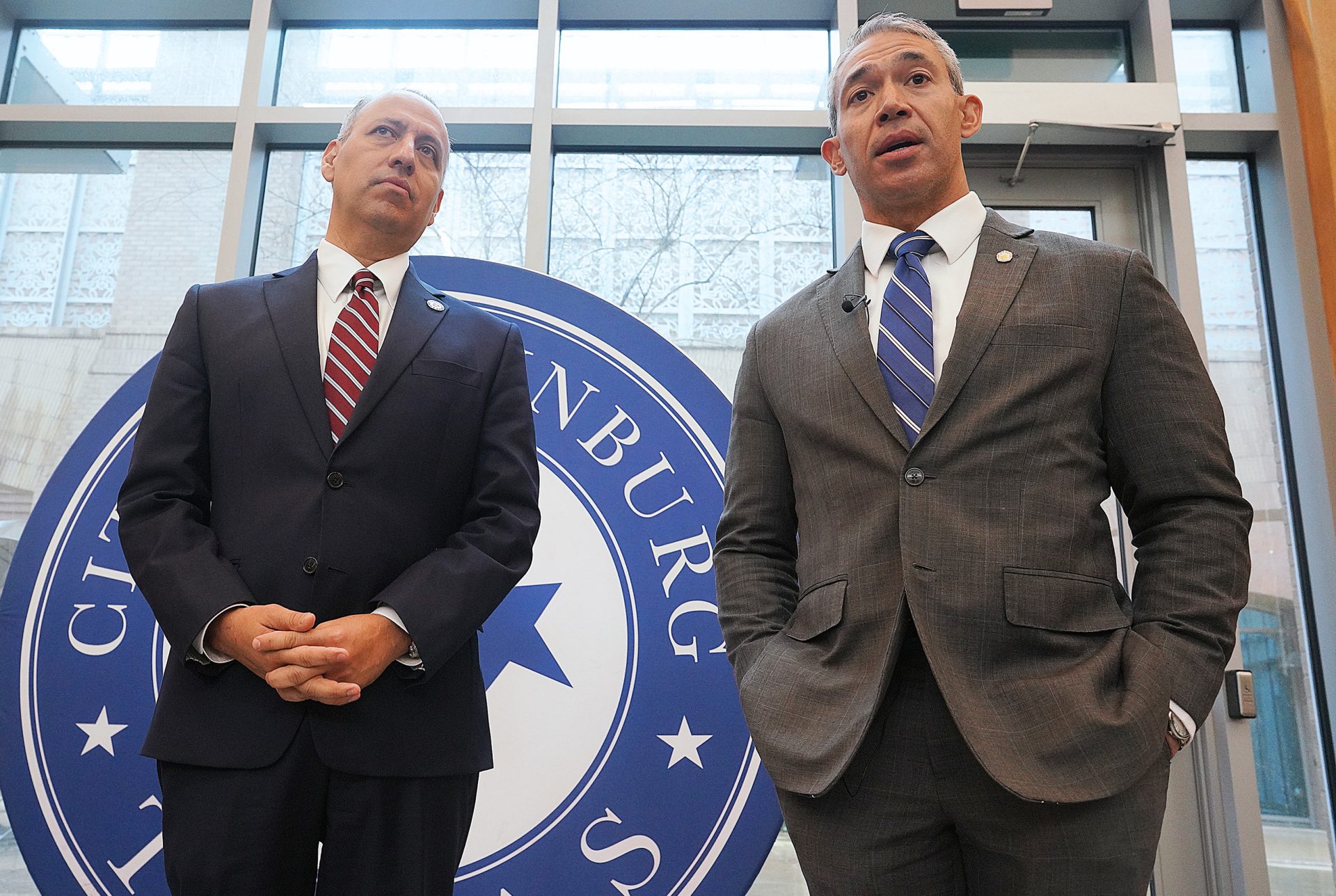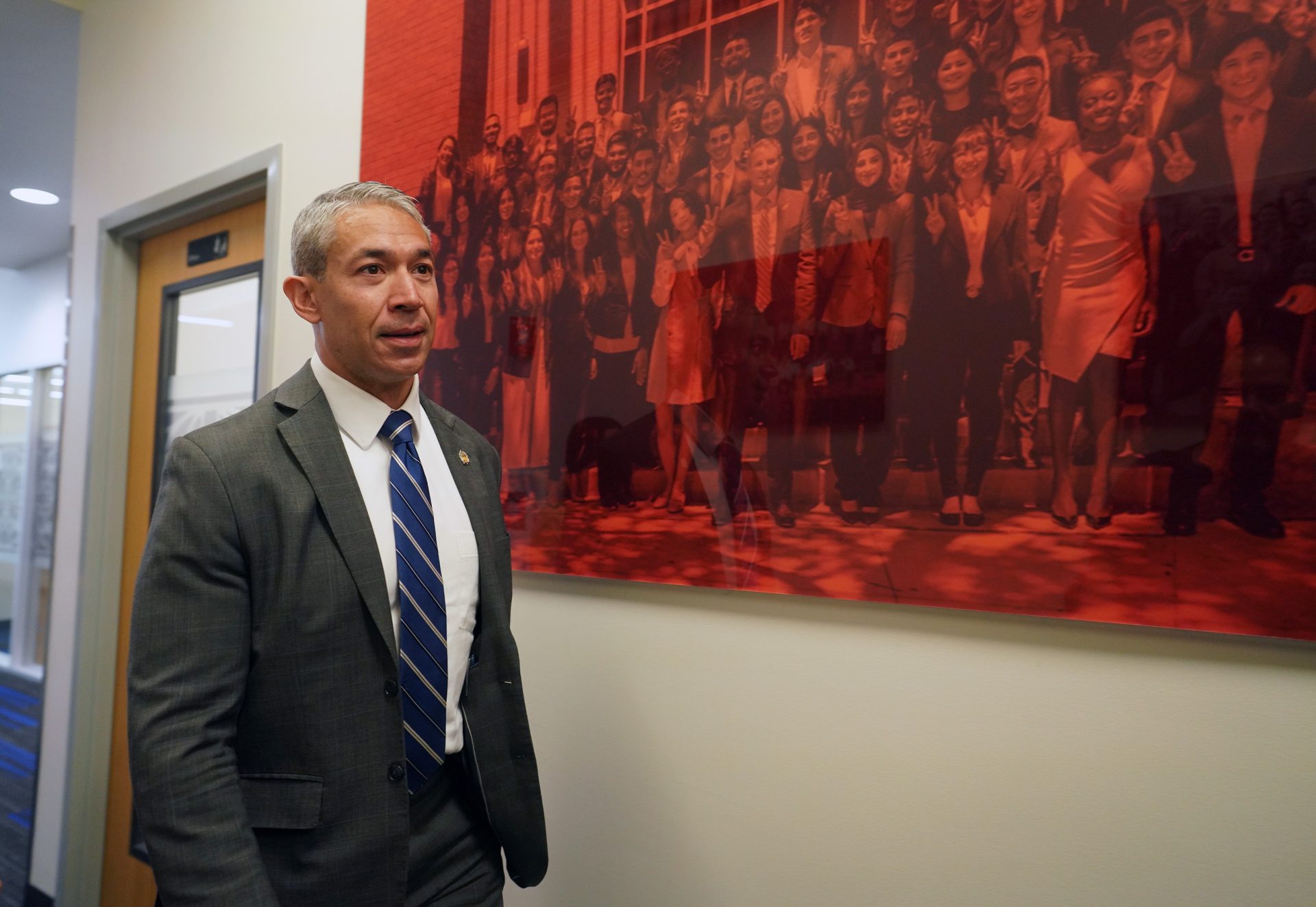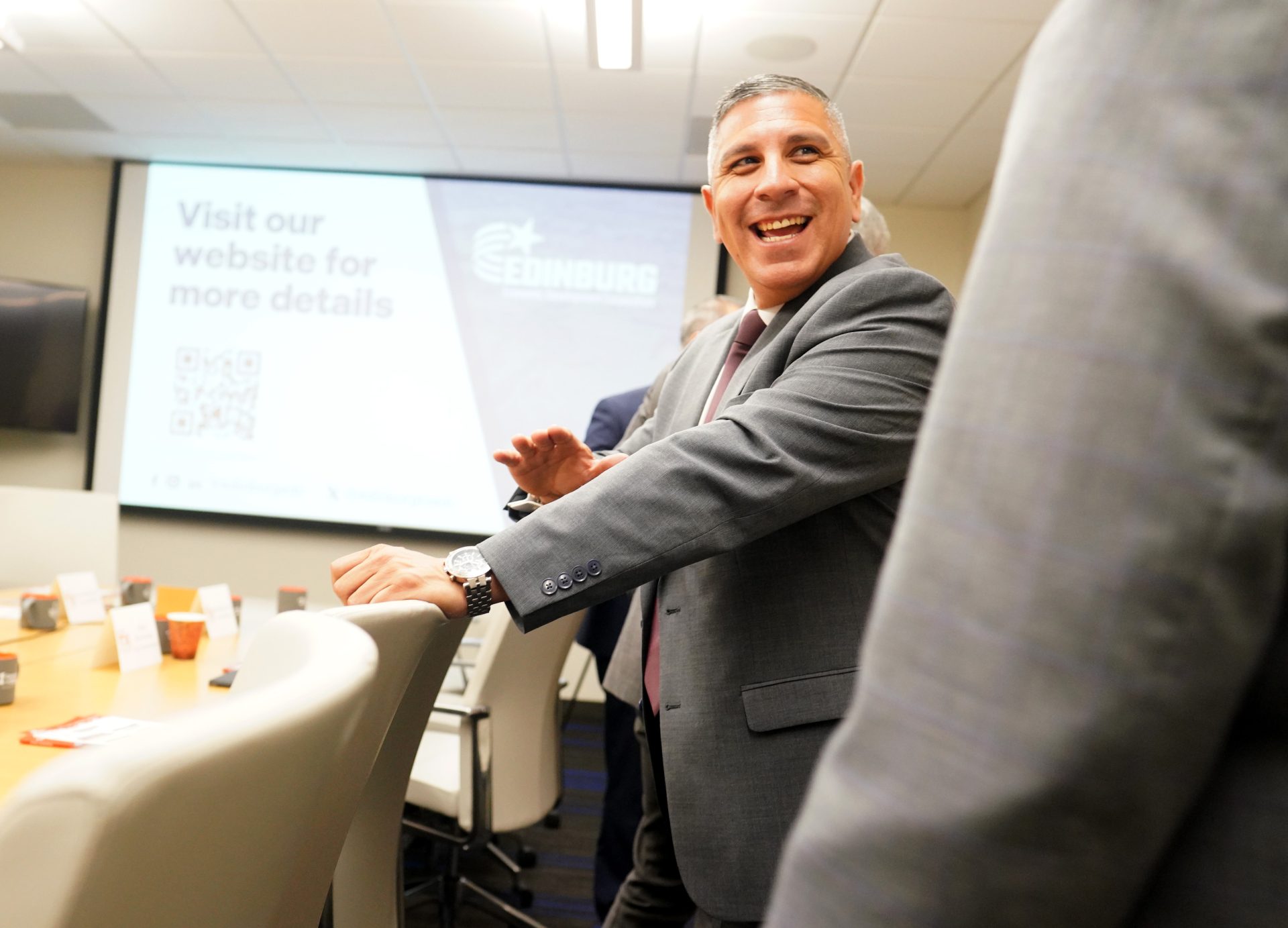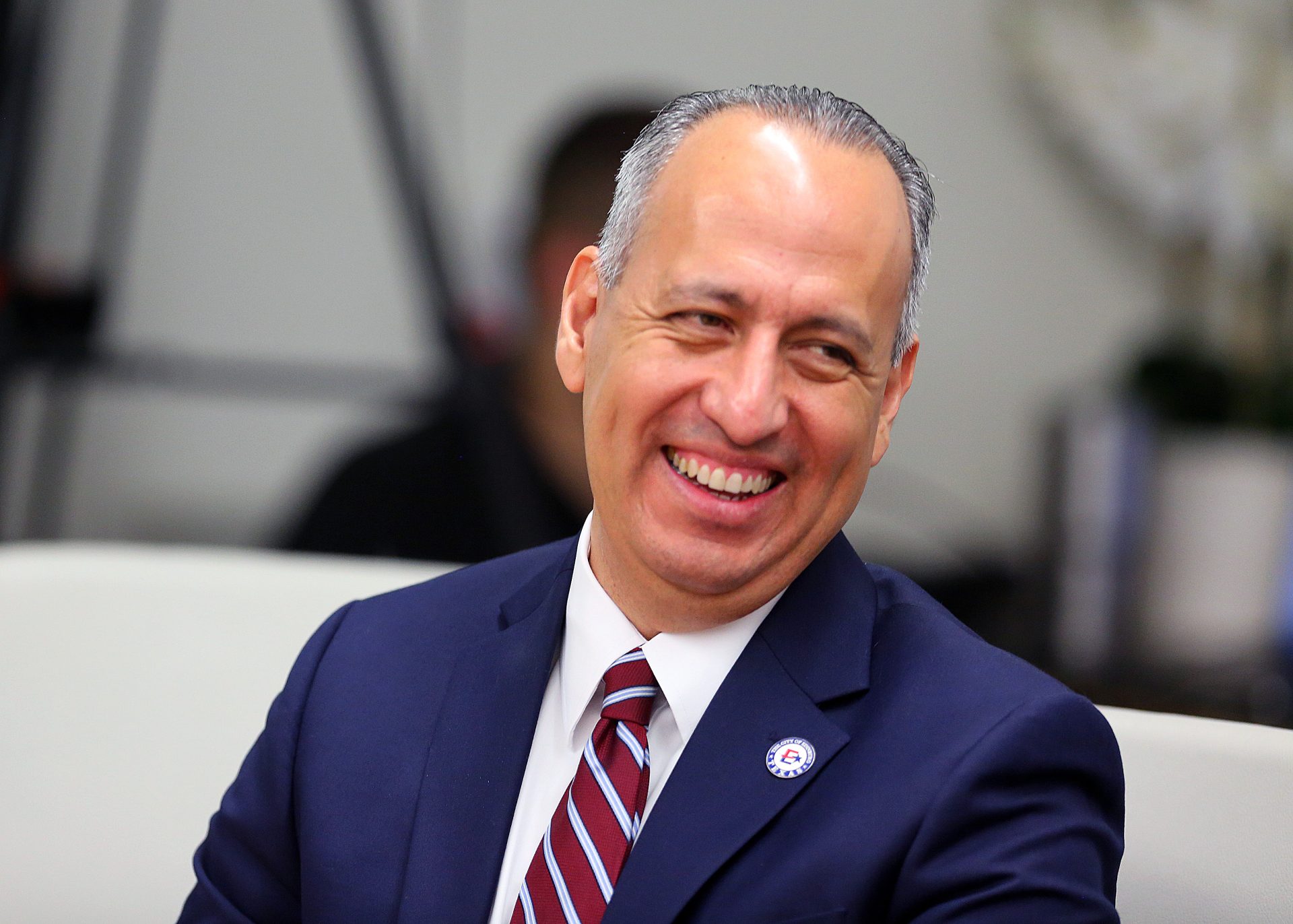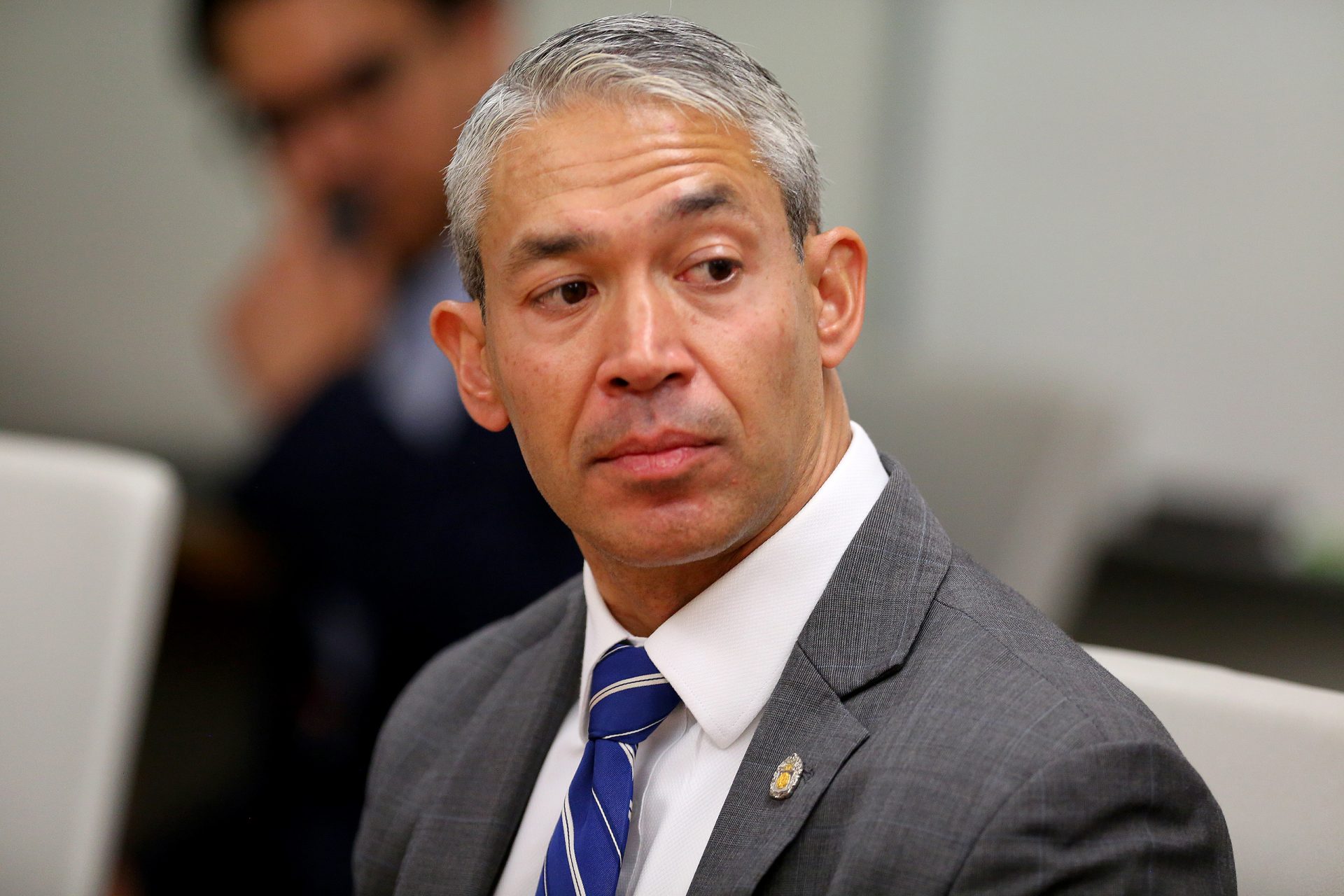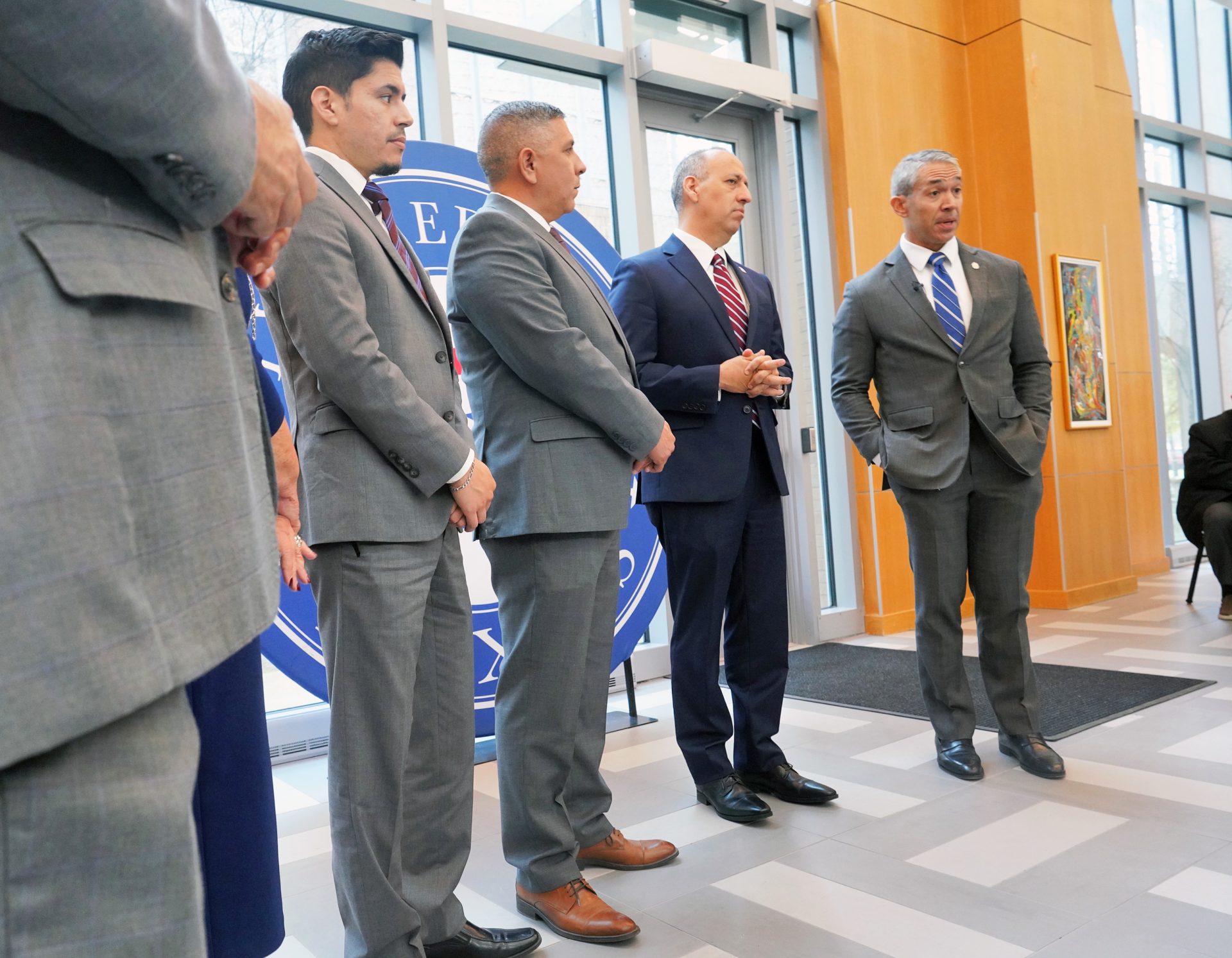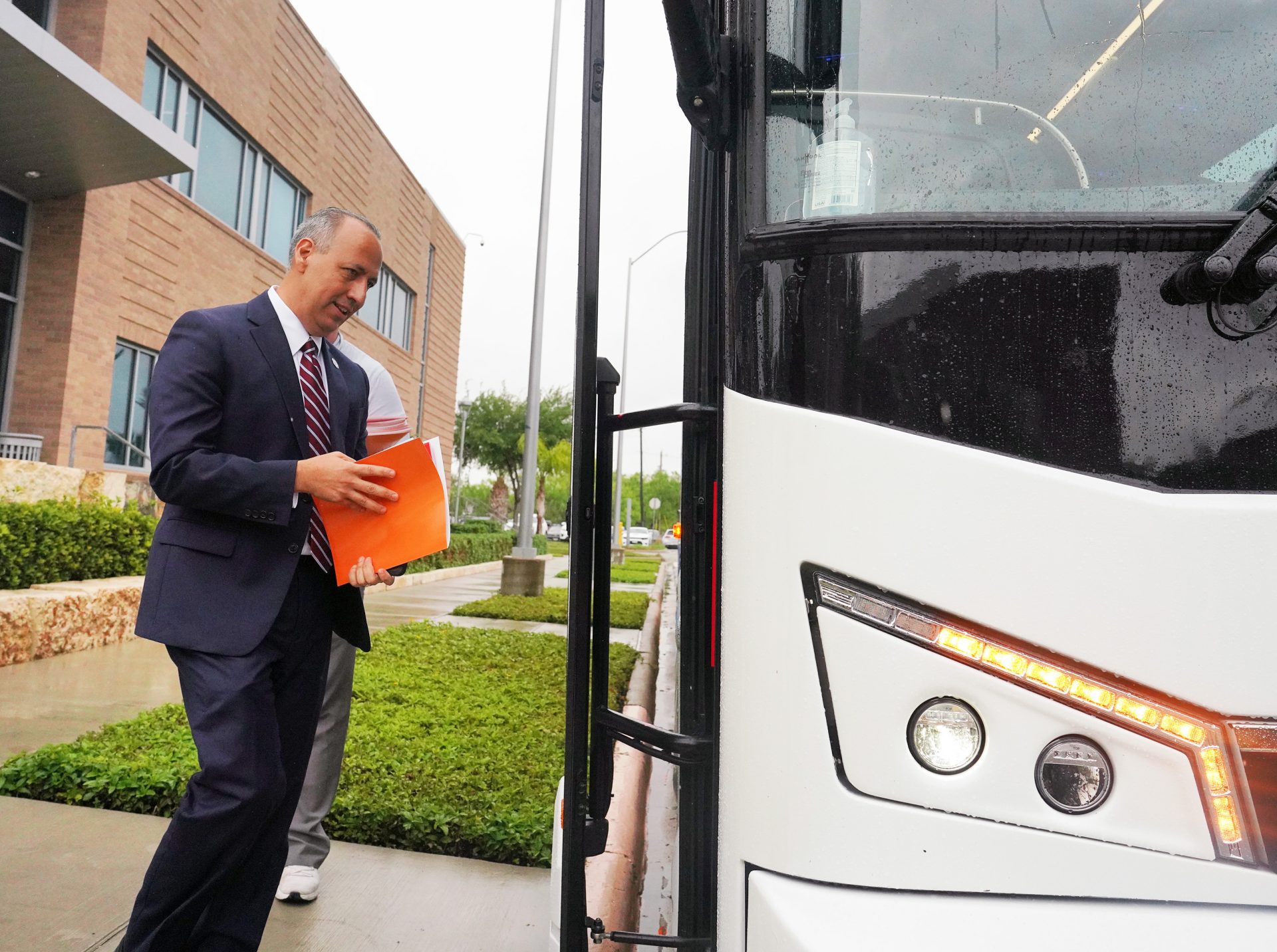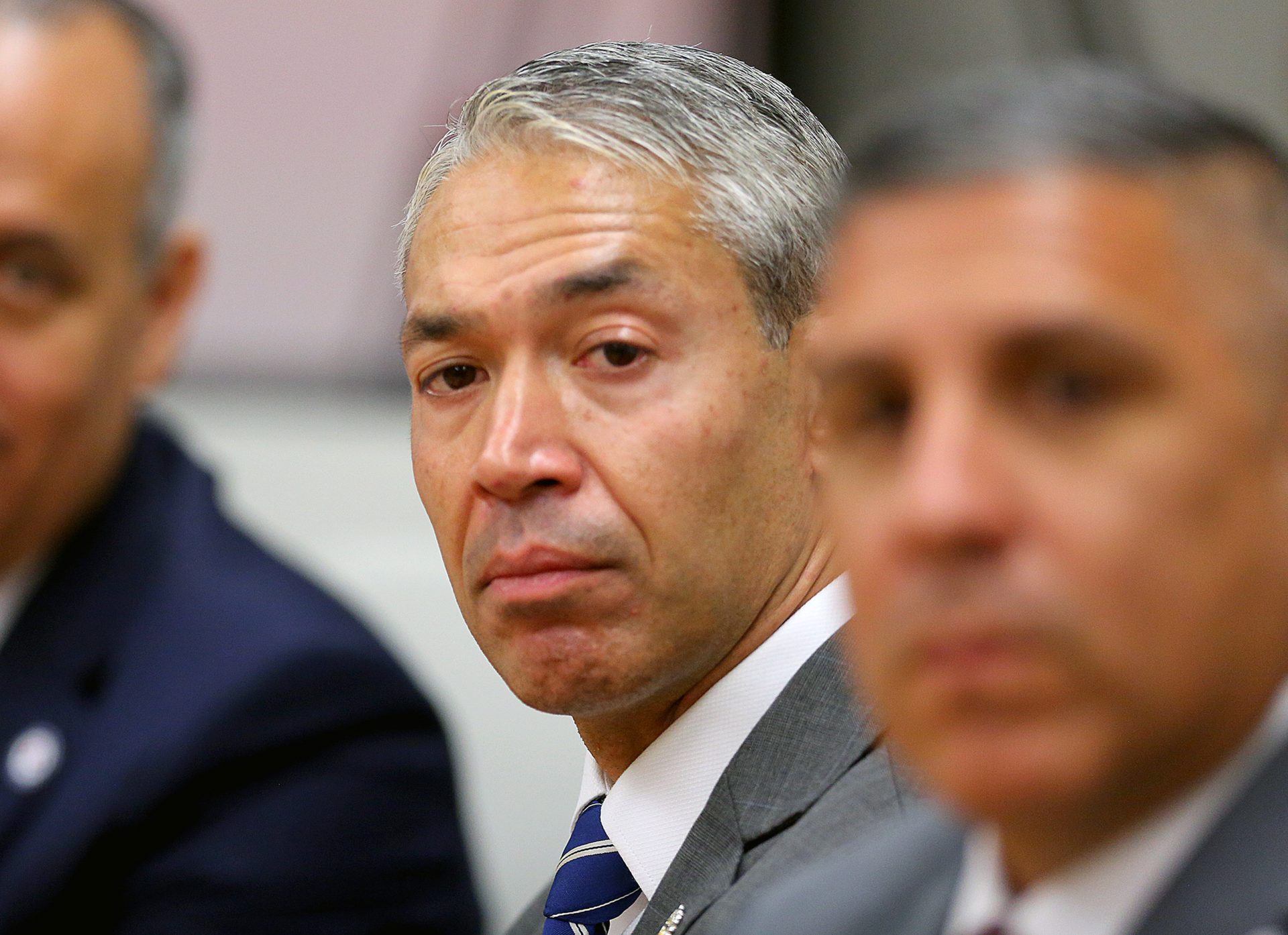|
Only have a minute? Listen instead
Getting your Trinity Audio player ready...
|
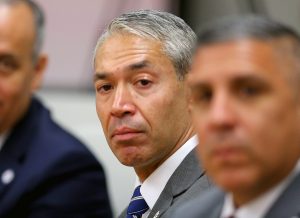
EDINBURG — There’s power in speaking with a unified voice, and that’s precisely what municipal leaders from Brownsville to San Antonio hope to leverage through a new partnership called the South Texas Alliance of Cities, or STAC.
To that end, several mayors from STAC member cities met for a quarterly meeting at the UTRGV School of Medicine campus in Edinburg on Monday.
There, leaders from Edinburg, San Antonio, McAllen, Weslaco, Brownsville and Mission heard about the school’s recent successes, learned about local economic development opportunities, and got a closed-door briefing on border security from U.S. Border Patrol.
It’s all part of a relatively new effort spurred by San Antonio Mayor Ron Nirenberg to capitalize on the shared heritage of the communities in the greater South Texas region in order to wield more clout economically and politically.
“When we work together as a collaborative community we can combine our strengths, we can leverage our political and economic force, and we can make sure that the rest of the country knows the importance of South Texas,” Nirenberg told local reporters just after the group of mayors had convened for a working breakfast.
“We want to make sure that we are telling the story of South Texas, the importance of it, the important strong friendship and binational economic partnership between the United States and Mexico,” Nirenberg added a moment later.
The San Antonio mayor spoke of how, increasingly, people are beginning to recognize South Texas for the powerhouse that it is; that economic, social and political trends seen here are often reflected in the state at large, and ultimately, nationwide.
“As South Texas goes, so goes Texas and so goes the United States,” he said.
While Monday’s discussions focused more on issues that are more hyper-local to the Rio Grande Valley, such as Hidalgo County Judge Richard F. Cortez’s Prosperity Task Force, or Edinburg’s economic development progress, the alliance has also turned its attention to larger issues.
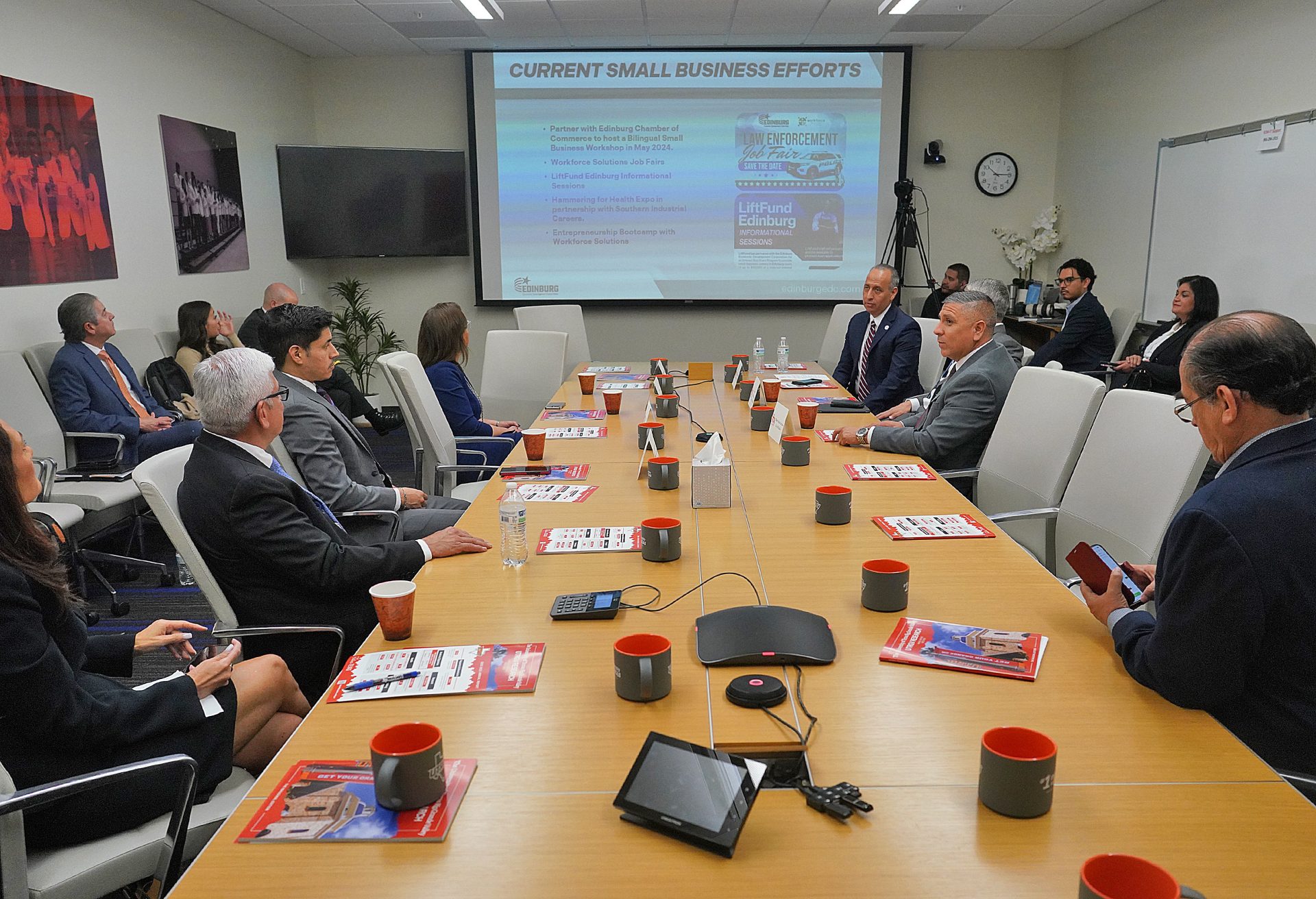
That includes challenging the narratives of the region that often play out in national headlines, particularly regarding border security and immigration.
“We need to make sure that we share all the information on our area, our region,” Edinburg Mayor Ramiro Garza Jr. said.
Garza serves as the inaugural chairman of the alliance, which first assembled last May, and hosted Monday’s events.
“Within a 150-mile radius of Edinburg, there’s 10 million people. That includes the northern part of Mexico. A lot of that is not talked about. So there’s a lot of opportunities here,” Garza continued.
Later, Mayor Nirenberg spoke of the importance of illustrating South Texas’ predominantly Latino culture as an asset and a strength rather than simply a political talking point.
“We have a shared heritage, a history that we’re proud of and … that’s something that needs to be seen as it is, which is a strength for this country and for this state and for our economy,” Nirenberg said.
“Part of the reason for forming the South Texas Alliance is to tell that story and make sure it resonates,” he added.
The alliance has begun to take steps to provide context through commentary on border-related legislation.
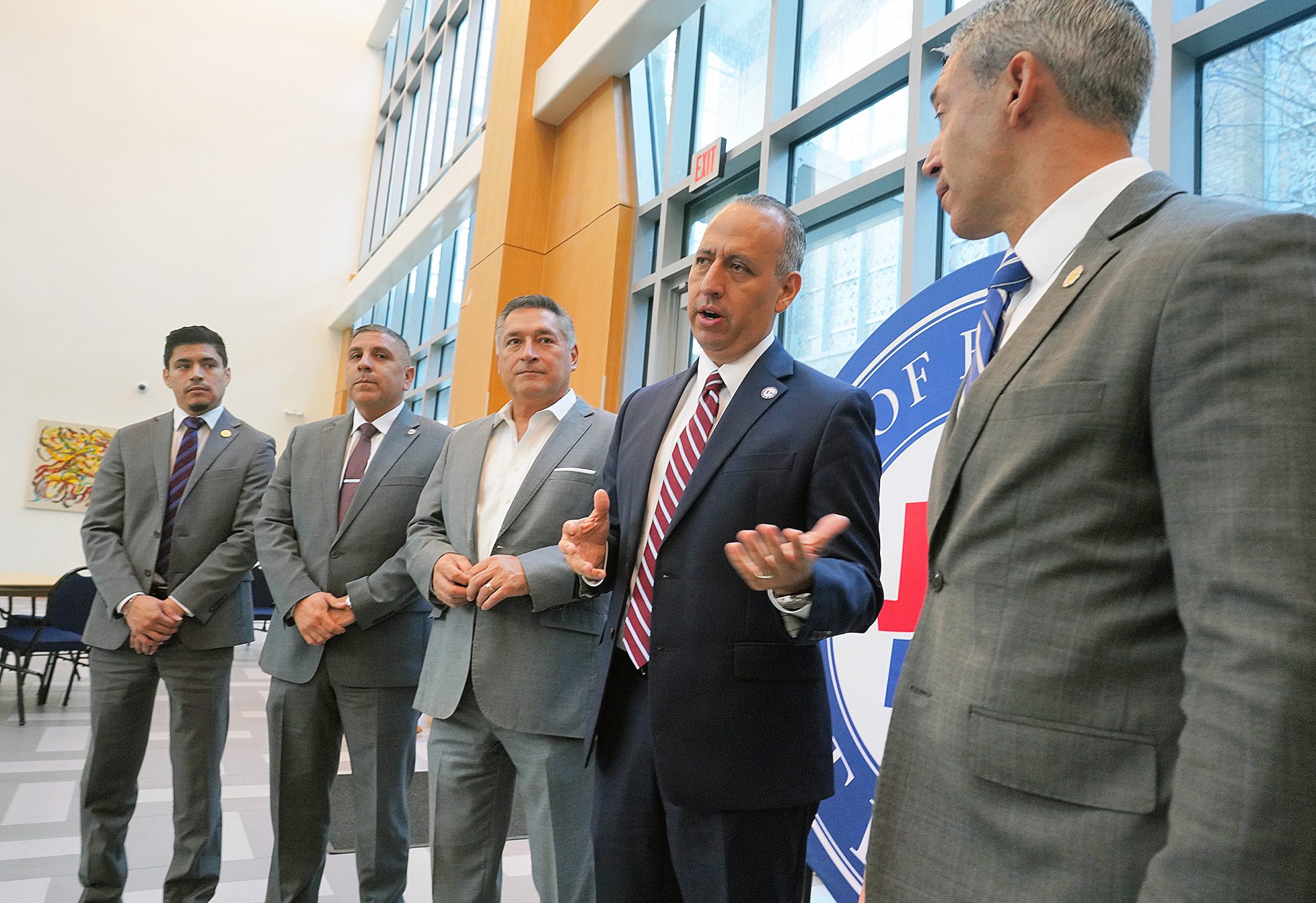
Most recently, the group of mayors have come together to urge Congress to pass a bipartisan border bill that would provide increased funding for border agents, hire 1,500 customs agents, and more than 4,300 asylum officers, according to a fact sheet provided by the White House.
However, the bill has remained stalled since last month, when House Republicans blocked its passage.
“The bipartisan border bill is one of those solutions that Congress can take to improve the situation on the border and to also deal with issues that, frankly, Congresses past and present have walked away from for the last 40 years,” Nirenberg said.
The alliance has yet to formally take a stance on a piece of border legislation that’s much closer to home — Texas’ Senate Bill 4.
That bill would turn local, county and state law enforcement officers into de facto immigration officers by giving them the authority to arrest people suspected of illegally crossing the Mexico border.
Currently, enforcement of the law has been paused thanks to a temporary stay mandated by the U.S. Supreme Court. But that pause was set to expire at 5 p.m. EDT Monday.
“Collectively, we have not taken a position on that Senate Bill 4,” Garza, the Edinburg mayor said, adding that, “I can tell you from my standpoint, it will be hard for our police department to enforce that.”
Nirenberg said the bill is “not a solution” to the issues border communities face, and again called on Congress to settle the matter by taking action.
“SB4 is just another attempt by partisan state legislators to exploit the challenges of our immigration system that has not been modernized, or meaningfully addressed by Congress in over a generation,” Nirenberg said.
“We don’t know its full impact, but … it will undoubtedly open the door for racial profiling which is not helpful to the actual enforcement of laws in local communities across Texas,” he added.

